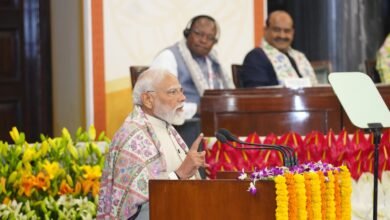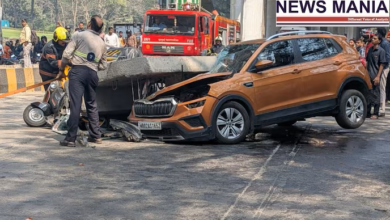Centre To SC: Reconsider The Decision To Release The Assassination Of Rajiv Gandhi Suspects; It Was A Mistake And An Injustice

The Centre on November 17 petitioned the top court, asking for a review of its order, six days after the Supreme Court mandated the release of the remaining six prisoners serving life sentences for the 1991 murder of former Prime Minister Rajiv Gandhi at Sriperumbudur in Tamil Nadu.
The Centre claimed in its petition for review that the order was passed without affording it an adequate opportunity of hearing, that the order contains errors apparent on the face of the record, and that it violates principles of natural justice.
The Supreme Court extended the benefits of its May 18 order releasing co-convict A G Perarivalan to the six prisoners on November 11, releasing Nalini Sriharan, T Suthendraraja alias Santhan, V Sriharan alias Murugan, Robert Payas, Jayakumar, and Ravichandran alias Ravi.
The Supreme Court’s decision was deemed extremely problematic, absolutely false, and entirely undesirable by the Congress, but Chief Minister of the DMK M. K. Stalin hailed it as historic since it reinforces the cornerstone of democratic ideals.
The Union of India was not named as a respondent in the convicts’ plea, despite it being a necessary and proper party to the, according to the Centre in its review petition.
Because of this, the court was denied the vital assistance of the Centre, which provided it with important facts, getting to the heart of the matter, which would have obviously and ex-facie demonstrated the distinction between the May 18 order absolving Perarivalan and the six accused, four of whom are Sri Lankan citizens.
According to the Centre, the assistance of the Union of India was of paramount importance in such a sensitive matter as the matter has huge repercussions on the public order, peace, tranquility, and criminal justice system of the country.
The review petition claimed that the Perarivalan order had been incorrectly relied upon when the November 11 order was made. It also claimed that in the absence of any assistance from the Union of India it could not be pointed out that the May 18 order in fact and in law, was not applicable to the case of the remaining co-convicts as… as the majority of the Appellants were foreign nationals and had a distinct and more serious role in comparison to Perarivalan.
According to the Center, pardoning a foreign terrorist who had been rightfully found guilty under local law for the heinous crime of killing the nation’s former prime minister is a matter with broad international implications and as such, comes under the purview of the Union of India’s sovereign powers.
According to the statement, the final judgment rendered by this Honourable Court contained glaring and obvious errors that were seen on the face of the record due to the failure to present such important facts that got to the heart of the problem. In addition, the absence of UOI assistance to this Honourable court during the adjudication of the current matter has led to an acknowledged and blatant violation of the principles of natural justice and has actually led to a miscarriage of justice.
It claimed that the Order dated 11.11.2022 not only contained errors that were immediately apparent from the record but also violated basic natural justice standards, necessitating a review.
News Mania Desk






